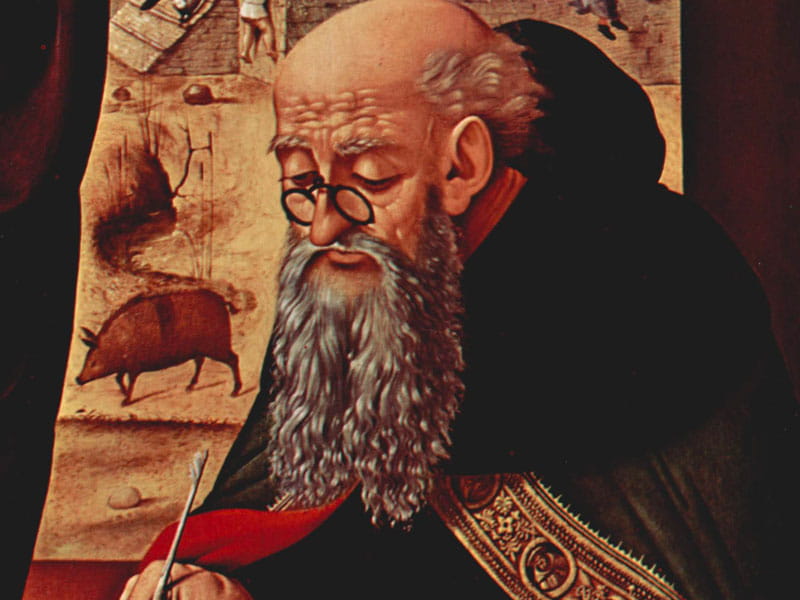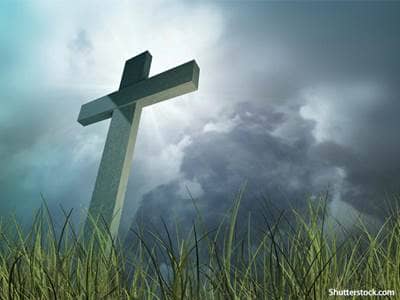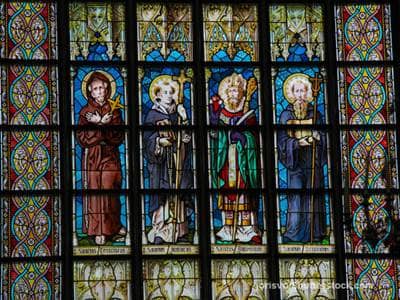St. Anthony of Egypt (251-356)

The life of Anthony will remind many people of St. Francis of Assisi. At 20, Anthony was so moved by the Gospel message, “Go, sell what you have, and give to [the] poor” (Mark 10:21b), that he actually did just that with his large inheritance. He is different from Francis in that most of Anthony’s life was spent in solitude. He saw the world completely covered with snares, and gave the Church and the world the witness of solitary asceticism, great personal mortification and prayer. But no saint is antisocial, and Anthony drew many people to himself for spiritual healing and guidance.
At 54, he responded to many requests and founded a sort of monastery of scattered cells. Again like Francis, he had great fear of “stately buildings and well-laden tables.”
At 60, he hoped to be a martyr in the renewed Roman persecution of 311, fearlessly exposing himself to danger while giving moral and material support to those in prison. At 88, he was fighting the Arian heresy, that massive trauma from which it took the Church centuries to recover. “The mule kicking over the altar” denied the divinity of Christ.
Anthony is associated in art with a T-shaped cross, a pig and a book. The pig and the cross are symbols of his valiant warfare with the devil—the cross his constant means of power over evil spirits, the pig a symbol of the devil himself. The book recalls his preference for “the book of nature” over the printed word. Anthony died in solitude at 105.
-
St. Agnes (d. 258?)
-
St. Bonaventure (1221-1274)
-
Sts. John Jones and John Wall (c. 1530-1598; 1620-1679)
-
Servant of God Francis Garces and Companions (c. 1781)
-
Blessed Junipero Serra (1713-1784)
-
St. Anthony of Padua (1195-1231)
-
Our Lady of Mount Carmel
-
St. John Francis Regis (1597-1640)
-
St. Agatha (d. 251?)
-
Blessed Adolph Kolping (1813-1865)


